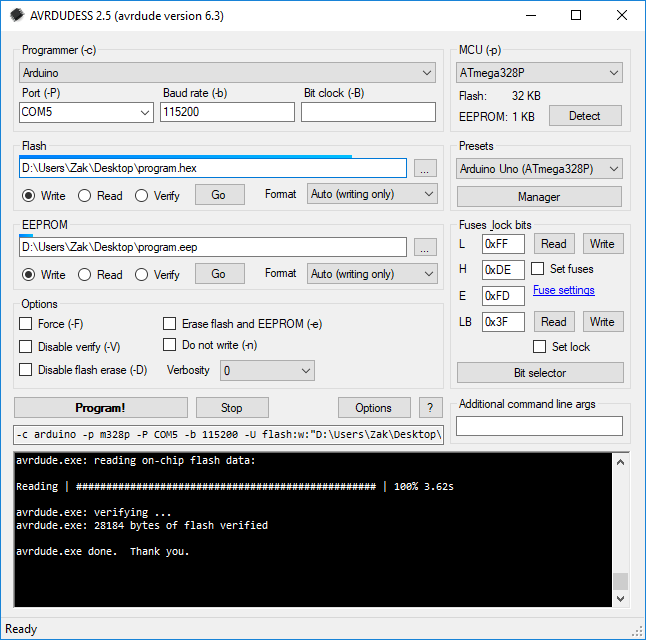Avr Studio S Kompilyatorom Winavr Torrent
AVRStudio is the development software for AVR microcontrollers supplied by Atmel to allow users to easily develop code for their devices. It includes project management, code editors, assembler and C compilers, simulator and programmer and emulator support. It has been developed over the years and has reached AtmelStudio v7.2 but older versions are available, so which version is the best for you?
AVRStudio was pretty buggy to start with but settled down with AVRStudio 4. This was the standard software for many years and slowly got better until AVRStudio 4.19, which is the last release. Atmel then scrapped this platform and joined the bloat-ware revolution with a brand new AtmelStudio 5. Aldus photostyler for windows 8.
AVR Studio was created by Atmel in order to help developers to efficiently create applications for AVR microcontrollers using C/C++ programming languages. This piece of software comes with a large number of tutorials, which allow the users to get familiar with the application.
This was quickly replaced by AtmelStudio 6 as 5 was full of bugs. The latest offering is AtmelStudio 7, which is similar to 6. AtmelStudio 5, 6 and 7 all use Microsoft net framework and other Microsoft platforms with the result that they are HUGE – 500 to 750MB and take ages to download and install. The environment is very nice, with lots (and lots) of features to help organise code including “solutions” instead of workspaces, links to social media and much more. Latest versions of AtmelStudio also support SAM (Atmel ARM) devices, another reason they are so complicated. However, all these amazing features come at a price!
You need a very fast PC, preferably quad core, with several Gigabytes of RAM or it will run like a pig. On slower computers, like older laptops and dual cores, just having it installed can stall the whole PC so it is not the best solution if you have an old computer. For MAC users, Studio can be run in a in a virtual Machine, such as Parallels. Studio 6 and 7 will run but the performance is too lousy to allow you to work properly. With Studio 4, the performance is good enough, even on a virtual OS. One thing Atmel did do right was to allow you to import older AVRStudio 4 projects as there are lots of older projects available in training kits and on the web. Just use File->Import->AVR Studio 4 Project What about AVRStudio 4?

This is still the best solution unless you have a super fast PC but Atmel caused a major problem when they finished version 4. They took the last released stable version v4.18 and the last service pack SP3 and combined them into a final release, AVRStudio 4.19. Unfortunately, they managed to create a bug in the process that has never been fixed.
This bug means that new projects do not setup the WinAVR C toolchain – existing or sample projects will be fine but new ones give a compile error, like vr-objcopy: ‘Filename.elf’: No such file. The solution is to add the toolchain manually like this: Go to Project -> Configuration Options -> Custom Options. Untick the “ Use AVR toolchain” box and set the paths to: avr-gcc: C: WinAVR-20100110 bin avr-gcc.exe make: C: WinAVR-20100110 utils bin make.exe This is a project based setting so you need to do this every time you create a new project! If you create lots of projects, you might be better off reverting to AVR Studio 4.18 (build 684) and AVR Studio 4.18 SP3 (build716). These are available on this page, along with many other AVRStudio versions, Uninstall AVRStudio 4.19, install v4.18 and then SP3. What about tool support in different versions? Most tools, including Kanda AVRISP programmers, AVRISP mkII programmer, AVRDragon and JTAGICE mkII programmer and emulators will work in all versions of AVRStudio.
But the lowest cost emulator JTAGICE is not supported in version 5, 6 or 7, so you need AVRStudio 4 to take advantage of this low cost unit. AVR Dragon has also been made obsolete (as of October 2018). The recommended replacement is ATMEL ICE, which supports both AVR and SAM microcontrollers. Unfortunately, it has 1.27mm (0.05″) 10-way outputs and the cheapest versions don’t come with any adapters. To get an adapter to 6 or 10-way 2.54mm (0.1″) connectors, you need to buy the expensive version. This is 3 times the price of the cheapest board only version! Kanda will create a solution for this soon as we replace AVR Dragon in our training kits.